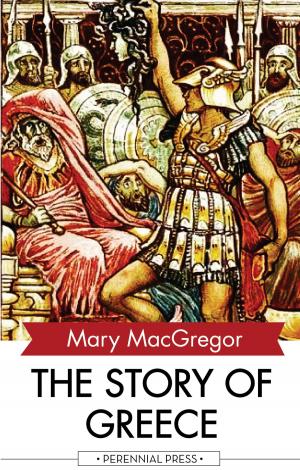Gustavus Adolphus and the Struggle for Power During the Protestant Reformation
Nonfiction, History, Modern, 17th Century, Renaissance, Medieval| Author: | Charles Fletcher | ISBN: | 9781518357428 |
| Publisher: | Perennial Press | Publication: | January 1, 2016 |
| Imprint: | Language: | English |
| Author: | Charles Fletcher |
| ISBN: | 9781518357428 |
| Publisher: | Perennial Press |
| Publication: | January 1, 2016 |
| Imprint: | |
| Language: | English |
THE period of the Reformation had produced two great changes in the history of Europe. It had revolutionised religion and it had revolutionised commerce. Both changes were the result of a previous revolution in thought. It was not so much that men had not dared to think in the Middle Ages -- many of them had, like Abelard and Wiclif, dared to attack the prevalent system -- but it was rather that men, as a whole, had not taken the trouble to think, and few indeed were the incentives to such trouble. With the invention of printing it had, however, become a great deal easier to think. Thought was, so to speak, forced upon people, who at first would gladly have avoided the trouble of it, but who soon found it a pleasure, an excitement, a moral necessity, and then, as Ulrich von Hütten said: "Men began to awake and live."
The result of their awakening was that they began to desire to provide better for their bodies and better for their souls. It is rather characteristic of the end of the Middle Ages that they should have thought first of their bodies. It was all very well for Erasmus to say: "First I shall buy Greek books, and then clothes"; but, in the first place, the majority of men were not as Erasmus; and, in the second place, Erasmus did not mean what he said. But before any serious attack had been made upon the dominant form of Christianity, serious attacks had been made upon the dominant system of trade and commerce. That there was an open-sea route to the Indies had long been an idea of the Portuguese navigators, who crept stealthily along the coast of Africa year after year, in search of the Cape of Good Hope. Columbus undertook his western voyage with the same idea, and called the naked Hispaniolans, upon whom he lighted, Indians. But what he went to seek he found not. The prize fell to the Portuguese, although it was not until many wars had been fought with the natives on the coasts of Malabar that they began to reap the fruit of their adventures. About the year 1503, merchants from Lisbon began to appear in the markets at Antwerp and Bruges, offering for sale cargoes of sea-borne spices at about one tenth of the price at which the same commodity, land-borne by the old Venetian trade route from the East, had previously been offered. And why, it may be said, should a fall in spices affect the history of the world in general, and of Sweden in particular? Because spice was a prime necessary of life in the days when there were no green vegetables. And because the spice trade had become oceanic, all commerce became oceanic too. And the nations that lived upon the ocean would be the inheritors of the riches of the world. The old trade routes would be and were destroyed. The mighty organisation, which had brought the East and the West and the North, however feebly and expensively, together, whose pivot had been the Flemish towns, and whose two wings had stretched up the Mediterranean to Venice and Alexandria, and up the Baltic to Dantzic and Novgorod; -- that was to fall. And not merely to fall, but to tumble down in sudden collapse. Venice, and Bruges the Venice of the North, -- on hantoient toutes les nations étrangères, -- soon retained but shadows of their former importance. The haughty spirit of the former, and her wars against the Turks, enabled her to disguise the fact for three centuries. But these centuries were a lingering agony...
THE period of the Reformation had produced two great changes in the history of Europe. It had revolutionised religion and it had revolutionised commerce. Both changes were the result of a previous revolution in thought. It was not so much that men had not dared to think in the Middle Ages -- many of them had, like Abelard and Wiclif, dared to attack the prevalent system -- but it was rather that men, as a whole, had not taken the trouble to think, and few indeed were the incentives to such trouble. With the invention of printing it had, however, become a great deal easier to think. Thought was, so to speak, forced upon people, who at first would gladly have avoided the trouble of it, but who soon found it a pleasure, an excitement, a moral necessity, and then, as Ulrich von Hütten said: "Men began to awake and live."
The result of their awakening was that they began to desire to provide better for their bodies and better for their souls. It is rather characteristic of the end of the Middle Ages that they should have thought first of their bodies. It was all very well for Erasmus to say: "First I shall buy Greek books, and then clothes"; but, in the first place, the majority of men were not as Erasmus; and, in the second place, Erasmus did not mean what he said. But before any serious attack had been made upon the dominant form of Christianity, serious attacks had been made upon the dominant system of trade and commerce. That there was an open-sea route to the Indies had long been an idea of the Portuguese navigators, who crept stealthily along the coast of Africa year after year, in search of the Cape of Good Hope. Columbus undertook his western voyage with the same idea, and called the naked Hispaniolans, upon whom he lighted, Indians. But what he went to seek he found not. The prize fell to the Portuguese, although it was not until many wars had been fought with the natives on the coasts of Malabar that they began to reap the fruit of their adventures. About the year 1503, merchants from Lisbon began to appear in the markets at Antwerp and Bruges, offering for sale cargoes of sea-borne spices at about one tenth of the price at which the same commodity, land-borne by the old Venetian trade route from the East, had previously been offered. And why, it may be said, should a fall in spices affect the history of the world in general, and of Sweden in particular? Because spice was a prime necessary of life in the days when there were no green vegetables. And because the spice trade had become oceanic, all commerce became oceanic too. And the nations that lived upon the ocean would be the inheritors of the riches of the world. The old trade routes would be and were destroyed. The mighty organisation, which had brought the East and the West and the North, however feebly and expensively, together, whose pivot had been the Flemish towns, and whose two wings had stretched up the Mediterranean to Venice and Alexandria, and up the Baltic to Dantzic and Novgorod; -- that was to fall. And not merely to fall, but to tumble down in sudden collapse. Venice, and Bruges the Venice of the North, -- on hantoient toutes les nations étrangères, -- soon retained but shadows of their former importance. The haughty spirit of the former, and her wars against the Turks, enabled her to disguise the fact for three centuries. But these centuries were a lingering agony...















